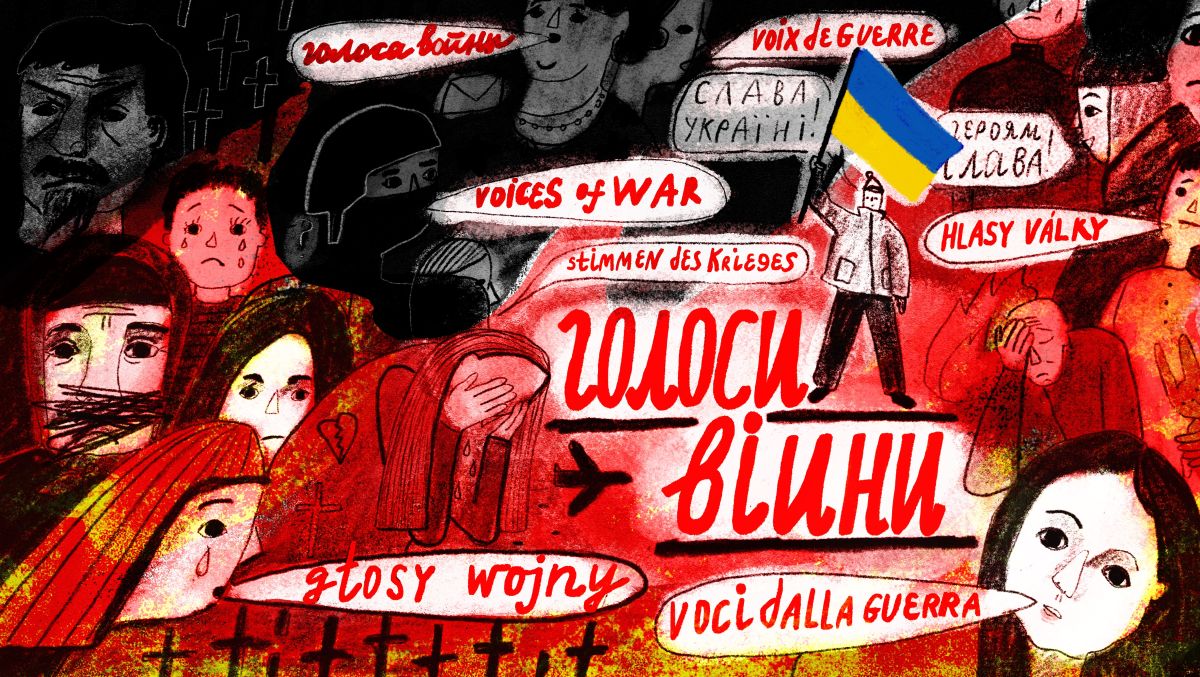War stories will be heard in nine languages — Memorial’s project

Hundreds of thousands of people have become and continue to become victims of the Russian invasion of Ukraine. Millions of people are forced to leave their homes, some for the second and third time. Each of these human stories is unique and worthy of reporting to the outside world. However, experience shows that no matter how dramatic the events and how egregious and cruel the war crimes committed by the Russian army to subdue the freedom-loving Ukrainian people, experiences lose their sharpness over time, and memories fade, becoming invisible to history. The most terrible atrocities are lost in the maelstrom of historical events. Unfortunately, forgetting crimes is the way to repeat them in the future.
The Kharkiv Human Rights Protection Group (or “Ukrainian Memorial”) launched the “Voices of War” project so that the stories of thousands of Ukrainians would be heard not only in real-time but also not forgotten in the future. These are stories of personal tragedies, property losses, and suffering from hunger, but at the same time, they are testimonies of resilience, brotherhood, mercy, and humanity. Furthermore, it is evidence of historical events and crimes, an objective legal assessment that is critical.
Ukrainian human rights organizations document killings of civilians, torture, deportations, destruction of historical monuments, and other crimes by analyzing open sources and using modern investigative techniques. Sadly, sometimes technology becomes powerless, as it was during the blockade of Mariupol when all communications were cut off during the Russian offensive. The only way to find out about the horrors in the city was to interview Mariupol residents, who miraculously managed to escape from the surrounded and burning city. They became the voices that told the world about the terrible reality. Not only residents of Mariupol but also those under occupation in other regions played the same role.
It is often as crucial for these people to be heard as it is for us to listen to them. After the recording, the heroines and heroes of the interviews often said they felt relieved. Since the start of the full-scale war on 24 February 2022, hundreds of stories in Ukrainian, English, and Russian have been published on the website and YouTube channel of the Kharkiv Human Rights Protection Group.
As part of a new project, the Memorial organization in the Czech Republic, Poland, France, Italy, and Germany will translate these interviews and create subtitles for videos in national languages. In addition, they will post them on their websites and pages on social networks and other media. Moreover, 4-5 interviews are expected to be distributed monthly. This project is supported by the Prague Civil Society Centre.
Another interviews translations into Spanish will be published using other funding sources. Finally, Memorial's Ukrainian organization will publish weekly digests of Russian protests against the war translated into all languages and prepared by Memorial's volunteers.
Thus, the stories of the war will be heard in nine languages worldwide!